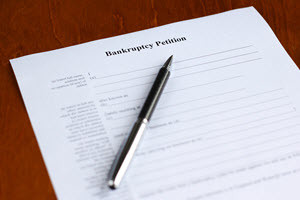Bankruptcy Constitution: A New UnderstandingApril 1, 2016
The Constitutional Roots of Bankruptcy

As a bankruptcy attorney, I often have the need to counsel my clients about their embarrassment and feelings that others will judge them harshly because they filed bankruptcy. I often give them a “pep talk” about the constitutional origins of bankruptcy. I hope this brief history helps to dispel the stigma of bankruptcy constitution.
Bankruptcy is Authorized by the Federal Constitution
Bankruptcy is specifically authorized in the United States Constitution at Article I, Section 8. The framers of the Constitution granted Congress the power to enact bankruptcy laws. The purpose of this power in the new republic was to prevent the abuses of debtors’ prisons that occurred in Great Britain and in the early colonies. The last debtor’s prison closed in Pennsylvania in the late 1680’s.
A Pillar of our Democracy
During the Constitutional Convention, the framers of the Constitution felt it was very important to allow the new citizens of the country to have a “fresh” start, and not to be burdened by their debts throughout their life. For this reason, bankruptcy debtors should not feel judged, because one of the pillars of our constitutional democracy was the creation of bankruptcy constitution laws, and the power of Congress to modify them over time.
There have been many bankruptcy laws, but modern bankruptcy law can be traced to the Bankruptcy Act of 1898. The Bankruptcy Reform Act of 1978 as amended, most recently in 2005, brings us to the current law.
A Fresh Start
All of the various bankruptcy laws contain the basic imprint of the framers of the constitution. That is a “fresh start.” A “fresh start” means that the unsecured debts of the bankruptcy debtor are discharged. This means that they are forgiven by law. Additionally, there is no tax consequence to the bankruptcy debtor when he or she does not pay off these debts.
Again, the purpose of this public policy is to allow people to move on in their life and to take essential possessions with them. This “fresh start” allows bankruptcy debtors to live the rest of their life without the burden of debt.
Contact our Bankruptcy Lawyer near Harrisburg for Help
If you have any further questions about bankruptcy as a debt relief remedy, please feel free to contact Steven P. Miner, Esquire, at Daley Zucker Meilton & Miner, LLC at (717) 724-9821.








